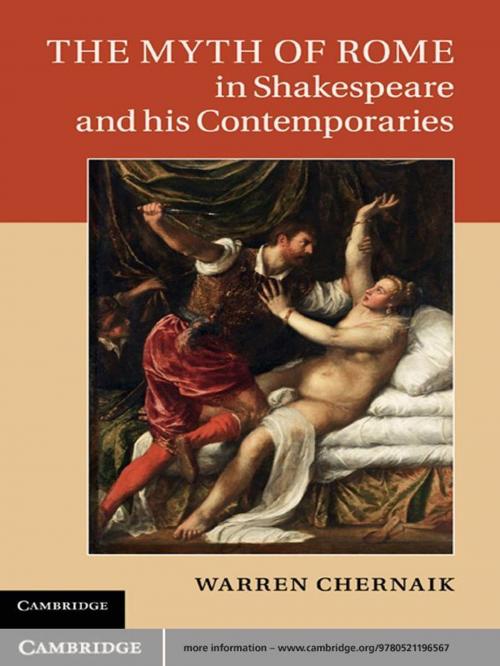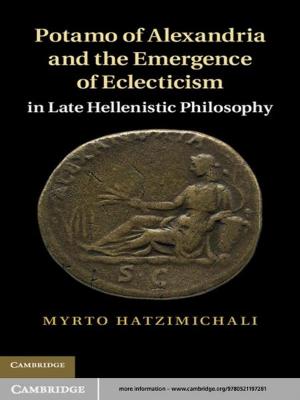The Myth of Rome in Shakespeare and his Contemporaries
Fiction & Literature, Literary Theory & Criticism, British, Nonfiction, Entertainment, Performing Arts| Author: | Warren Chernaik | ISBN: | 9781139063203 |
| Publisher: | Cambridge University Press | Publication: | March 17, 2011 |
| Imprint: | Cambridge University Press | Language: | English |
| Author: | Warren Chernaik |
| ISBN: | 9781139063203 |
| Publisher: | Cambridge University Press |
| Publication: | March 17, 2011 |
| Imprint: | Cambridge University Press |
| Language: | English |
When Cleopatra expresses a desire to die 'after the high Roman fashion', acting in accordance with 'what's brave, what's noble', Shakespeare is suggesting that there are certain values that are characteristically Roman. The use of the terms 'Rome' and 'Roman' in Julius Caesar, Antony and Cleopatra or Jonson's Sejanus often carry the implication that most people fail to live up to this ideal of conduct, that very few Romans are worthy of the name. In this book Chernaik demonstrates how, in these plays, Roman values are held up to critical scrutiny. The plays of Shakespeare, Jonson, Massinger and Chapman often present a much darker image of Rome, as exemplifying barbarism rather than civility. Through a comparative analysis of the Roman plays of Shakespeare and his contemporaries, and including detailed discussion of the classical historians Livy, Tacitus and Plutarch, this study examines the uses of Roman history - 'the myth of Rome' - in Shakespeare's age.
When Cleopatra expresses a desire to die 'after the high Roman fashion', acting in accordance with 'what's brave, what's noble', Shakespeare is suggesting that there are certain values that are characteristically Roman. The use of the terms 'Rome' and 'Roman' in Julius Caesar, Antony and Cleopatra or Jonson's Sejanus often carry the implication that most people fail to live up to this ideal of conduct, that very few Romans are worthy of the name. In this book Chernaik demonstrates how, in these plays, Roman values are held up to critical scrutiny. The plays of Shakespeare, Jonson, Massinger and Chapman often present a much darker image of Rome, as exemplifying barbarism rather than civility. Through a comparative analysis of the Roman plays of Shakespeare and his contemporaries, and including detailed discussion of the classical historians Livy, Tacitus and Plutarch, this study examines the uses of Roman history - 'the myth of Rome' - in Shakespeare's age.















